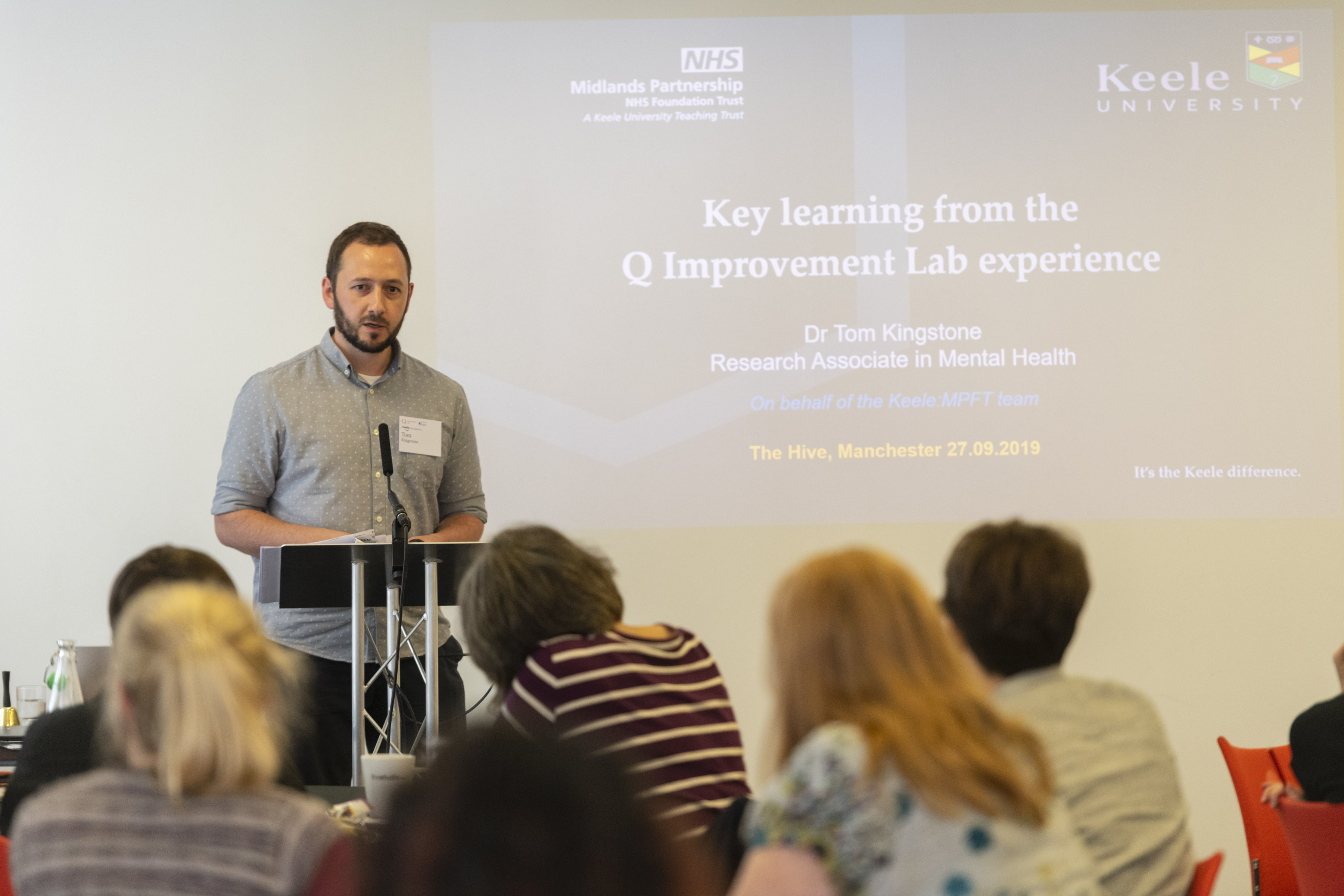Since March, the Q Lab and Mind have been supporting organisations to develop and test ideas in practice to improve care for people with mental health problems and persistent back and neck pain.
We are delighted to announce that four teams have been awarded grant funding from the Health Foundation and NHS England/Improvement to build on their learning and continue to develop their interventions in practice.
The funding will provide teams an opportunity to establish the evidence base for their interventions, and continue collaborations with partners to improve outcomes for people living with mental health problems and persistent pain. The funding will also help teams to explore the potential to spread and scale their interventions beyond their local context in the future.
The teams and their projects
Supporting people with chronic joint pain to self-manage in mental health settings
Health Innovation Network with Sydenham Gardens and Lewisham IAPT
The team will continue their work adapting the Joint Pain Advice model so that it can work successfully in mental health settings. This includes continuing testing with Sydenham Gardens – a community organisation – and building on their learning to test in another mental setting, the IAPT service in Lewisham. The team will develop plans for how the model can be adopted and adapted in other places in the future.
Psychologically informed physiotherapy skills training
Health Innovation Network with St George’s Hospital and Kingston Hospital
The team will be working to embed training and support for MSK physiotherapists across both Kingston and St George’s Hospital. The training package will increase the physiotherapy team’s confidence in delivering psychologically informed physiotherapy to support patients with both persistent pain and mental health problems. By working across two sites, to understand what enables the training to be successful, the team hope to develop a training package that has the potential to be spread to other settings.
Improving awareness of and support for the mental health needs of people living with persistent pain: optimising three prototype interventions
Keele University and Midlands Partnership NHS Foundation Trust
Through testing with the Q Lab, the team have developed prototypes for three interventions, that together will improve care for people with mental health problems and persistent pain. The interventions include an evidence-based video on the links between mental health and persistent pain, a joint training programme for MSK physios and volunteers, and a repository on local services for people to signpost to. The team will continue to develop and implement these ideas at the MSK Interface Service at the Haywood Hospital. The work will be supported by a community of practice set up by the team, that includes clinicians, volunteers, researchers and people with lived experience.
Enhancing engagement – building motivation and confidence with the aid of digital technologies
The team focused their testing work on understanding and improving the experience for people who didn’t engage with the patient management service. This highlighted the need for people to have access to information early on, to help them stay motivated in the process, but also the risk of overwhelming people with education materials. Based on their learning to date and user insights, the team will be developing a digital platform to improve experience and engagement with the service. They will work with developers to supplement an existing digital platform used in other pain services, with the potential for this work to be applied more widely.
Learning from the teams
Over the last 6-7 months working with the test teams, the Q Lab have been capturing the learning about what it takes to develop and test ideas in practice, working across physical health and mental health boundaries.
While the projects themselves are varied, some common themes have emerged which we have used to develop a practical guide to improve care across mental health and persistent back and neck pain. This will be published on 29 November so do keep an eye out for this.

Learning about the testing approach
It’s really exciting that from the Q Lab and Mind work we’re seeing some ideas and collaborations that show early potential to make an impact for people with mental health problems and persistent back and neck pain.
For the Lab team, this programme has been an opportunity to test and refine how we work alongside teams grappling with some of the same shared challenges, and the value it can offer.
Our role has often involved supporting teams to take one step back, so they can take multiple steps forwards.
For example, the test teams have been able to draw on the collaborative research conducted earlier this year, as well the experience of over 125 Lab participants to bring in viewpoints from a diverse range of people who have faced or are affected by similar challenges. This in turn has given confidence to the teams that they are on the right track.
We’ve also seen how working with teams early on, when first beginning their improvement work, has helped the teams refine their ideas, spending time diagnosing the problem before jumping straight to action. Our role has often involved supporting teams to take one step back, so they can take multiple steps forwards. By doing this, we hope that their ideas are best placed to succeed.
Stay connected
The teams will continue to share their progress via the Q community over the coming year. If you’re interested in a specific project, Q members can connect with the project leads directly. If you’re interested in the topic more broadly, do join the online group. If you have any questions, please do get in touch at QLab@health.org.uk